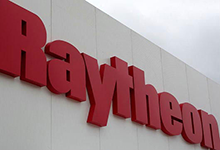 PCAS will dramatically speed close air support to ground troops
PCAS will dramatically speed close air support to ground troops
TUCSON, Ariz. -- Raytheon Company (NYSE: RTN) began flight testing DARPA's Persistent Close Air Support (PCAS) program. PCAS Phase 3 is an 18-month, $25.5 million effort scheduled to culminate in live-fire demonstrations. The program is designed to speed close air support to soldiers on the battlefield.
"PCAS will help reduce close air support response times from as long as one hour to just six minutes," said Tom Bussing, Raytheon vice president of Advanced Missile Systems. "By delivering critical information to decision makers more quickly, PCAS will save lives in the battlespace."
PCAS will enable ground troops, Joint Terminal Attack Controllers (JTACs) and combat aircrews to share real-time situational awareness and weapons systems data. With PCAS, soldiers on the battlefield can quickly and positively identify multiple targets simultaneously. JTACs and aircrews will jointly select the best precision-guided weapons for each target while minimizing collateral damage and friendly fire.
Current flight testing will highlight PCAS-air performance on an A-10 Thunderbolt aircraft and connectivity with the JTAC equipped with a PCAS-ground kit. The key element of PCAS-air is modular smart launcher electronics, which can be easily ported from one platform to another.
Once flight testing is complete, the PCAS system will be available for integration with other aircraft and participation in other demonstrations. Digital interoperability between platforms and JTACs will allow for increased situational awareness, improved coordination, and decreased timelines for close air support.
Raytheon is the systems integrator for PCAS and leads an industry team comprised of Rockwell Collins, General Electric, BAE Systems and 5-D Systems. Raytheon brings its expertise in overall systems integration, weapons, aircraft integration and unmanned aircraft system ground control stations to PCAS.


